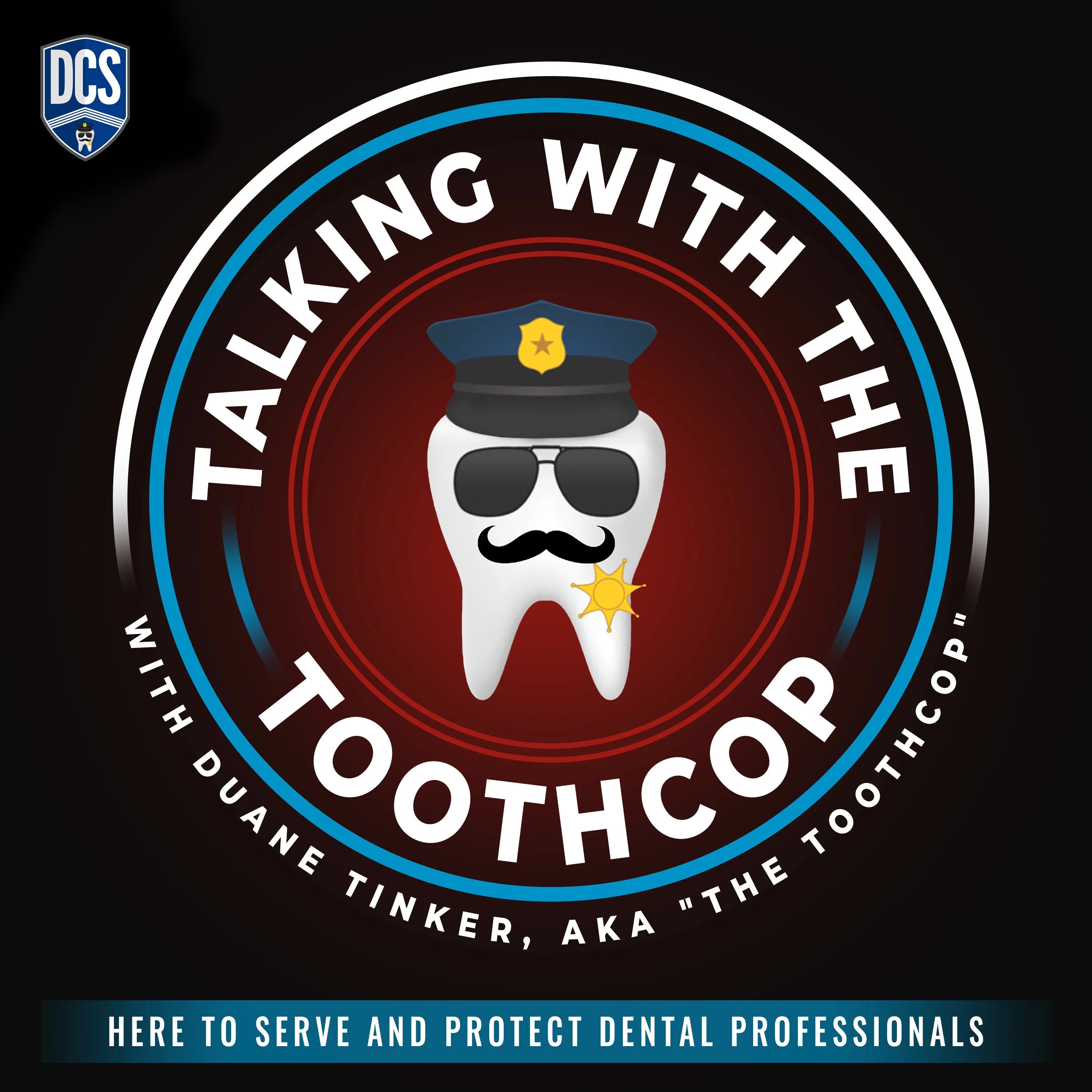Are PMP inquiries required for sedation meds that are dispensed in the office? A listener read through the rules in January 2020 and spoke with a sedation officer and was advised that they did not need to do the PMP check if they were dispensing in the office. But the way the rule is worded makes it seem as though you do need to. So in this episode of Talking with the Toothcop, Andrea and I will cover Chapter 111 and spell out the PMP rule in detail. Hopefully, this will clear up any confusion you may have!
Outline of This Episode
- [3:43] Rule 111.1: Additional Continuing Education Required
- [6:24] Rule 111.2: Self-query of Prescription Monitoring Program
- [7:43] Rule 111:3: Prescription Monitoring by the Dentist
- [10:51] Breaking down the PMP inquiry rule
- [12:54] Rule 111.4: Prescription Monitoring by the Board
- [14:12] Rule 111:5: Electronic Prescribing Waivers
- [16:51] Subscribe to our email list to stay up-to-date!
Rule 111.1 Subsection B: Additional Continuing Education Required
According to Rule 111.1 Subsection B, effective September 1st, 2020 every dentist that prescribes controlled substances must complete two hours of continuing education “...related to approved procedures of prescribing and monitoring controlled substances.” This can be taken annually to count toward continuing education.
Dentists have found this confusing because many have already taken the course. However, the requirement reset September 1st, 2020. So anyone who completed the two hours of continuing education on controlled substances before that date must retake it before September 1st, 2021. I know several thousand dentists have not yet taken this course. We offer this course on our site—that you can complete at your own pace—so check it out.
Rule 111.2: Self-query of Prescription Monitoring Program
Rule 111.2 became effective Dec. 25th of 2016:
“Each dentist who is permitted by the Drug Enforcement Agency to prescribe controlled substances shall annually conduct a minimum of one self-query regarding the issuance of controlled substances through the Prescription Monitoring Program of the Texas State Board of Pharmacy.”
Many dentists don’t even have a login for the PMP. You need to do this. The state board of pharmacies can report you and you’ll have to answer for your failure to comply. You will face disciplinary action, which starts with paying a fine and lead to jurisprudence assessment.
Rule 111:3: Prescription Monitoring by the Dentist
Rule 111:3 became effective March 1st, 2020, and says:
“(a) Prior to prescribing or dispensing opioids, benzodiazepines, barbiturates, or carisoprodol, a dentist shall access the patient's prescription drug history report through the Texas State Board of Pharmacy's Prescription Monitoring Program (PMP) Clearinghouse. Failure to do so is grounds for disciplinary action.”
The rule goes on to say that an employee of the dentist can do the PMP check when directed by said dentist. The only exceptions? The PMP inquiry does not have to be completed if the patient is diagnosed with cancer or receiving hospice care and it’s noted in their record.
If the dentist cannot do the inquiry due to circumstances outside their control—but has attempted—is not considered to have violated the rule. What circumstances might be outside of the dentist’s control? This would include something like the PMP website being down, your internet is down, etc.
You need to get a process in place, look at the drugs you prescribe, and make sure that you check the patient’s drug history through the PMP before you prescribe opioids, benzodiazepines, barbiturates, or carisoprodol.
Administering versus prescribing or dispensing: What Gives?
The PMP inquiry rule doesn’t apply to administering these drugs but prescribing or dispensing. Dispensing is giving it to the patient to take it later. Prescribing usually entails the patient picking up the medication from the pharmacy. In both cases, the patient has possession of the controlled substances with the opportunity to take them.
A PMP check is not required prior to administering to a patient in your chair immediately. Why? Because you are controlling how it’s administered and how much is administered. So if you're doing in-office sedation and giving it to the patient immediately from your office supply, you don’t need to do the PMP Check. If you prescribe the drug for the patient to pick up and you to administer, then you do need to complete the inquiry before doing so.
We cover a few other pertinent rules in this episode so be sure to listen all the way through! Let us know if you have any questions at toothcop@dentalcompliance.com.
Resources & People Mentioned
- Rule 111.1 Subsection B
- PRESCRIBING & MONITORING PRACTICES
- Texas Prescription Monitoring Program
- E-Prescribing Waiver
- Learn more about protectIt dental at https://dentalcompliance.com/drugkit or call them at 888-878-8916 and tell them that the Toothcop sent you!
- Check out ProEdge Dental at https://proedgedental.com/toothcop!
Connect With Duane
- https://www.dentalcompliance.com/
- toothcop@dentalcompliance.com
- On Facebook
- On Twitter
- On LinkedIn




